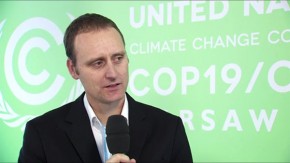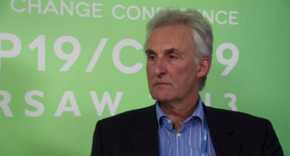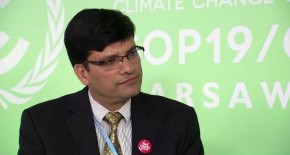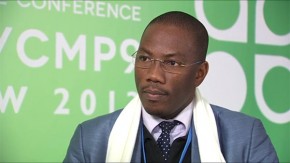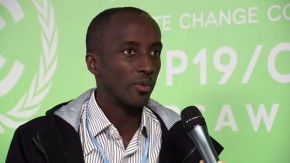COP19 (19/11/13) – Glen Peters, Senior Research Fellow, Centre for International Climate and Environmental Research talks about the publication of the carbon budget this week. The carbon budget produces the latest estimates of fossil fuel emissions, land use change and also the sinks of carbon touches in the oceans and the lands.
He says that things are not looking good at the moment because emissions have increased again in 2013 by 2%. He attributes coal to most of the increase, referring to China, Japan and Germany, who have increased their dependence on coal over the past few years.
Peters says that we have already used approximately 70% of the budget that is available to keep global temperatures below 2°C. He warns that if we continue this trend, we will end up using the entire budget, risking an increase of global temperatures by up to 5-6°C.
He says to prevent this, we need global emissions to peak by 2020 – or earlier – then to decrease emissions rapidly by 3-5% every year. We also need renewable technologies, such as those being implemented in China. However, Peters says that the growth in coal consumption has offset much of the progress that has been made by renewable technologies over the past few years.
He says the biggest challenge will be to overcome the inertia in our system and reduce our global coal consumption.
Regarding Australia and Japan’s controversial plans to scale down their climate targets, he says it is expected at these negotiations for countries to go backwards and forwards. What we need, he says, is a mix between aspirational thinking and what can be done realistically.
